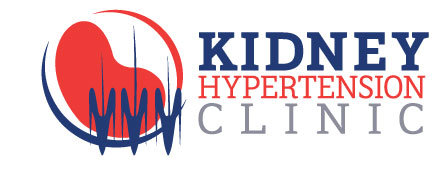Meet Our Team
Our team includes board-certified nephrologists, exceptional nurse practitioners & nursing staff, skilled technicians, highly-qualified dietitians & social workers, and an administration who ensures you receive outstanding care.


Perhaps you learned you have chronic kidney disease at a routine physical for work or at a checkup to monitor your diabetes or high blood pressure or at a kidney function screening. However you learned about it, the good news is that you found out you have it because the earlier you learn you have kidney disease, the more you and your renal team can do to maintain your kidney function to slow the progression or prevent kidney failure.
The word "chronic" in chronic kidney disease (CKD) means that CKD doesn't go away and has been present for at least six months. While your health care team will do all they can to take care of you and help you feel your best, you will want to take an active role in your care. There are things you can do such as:
Learn all you can about CKD and treatments for kidney disease. Knowledge is power. Look for books, articles, videos or audio tapes about kidney disease. The internet can also be a great place to learn, just don't believe everything you read. Some trustworthy sites include DaVita, Life Options Kidney School and the National Kidney Foundation.
In addition to researching on your own, ask your doctor questions. As you think of things that you want to know, jot them down and bring them with you when you go to the doctor for a check-up to get answers. Keep a kidney care notebook of everything you learn about CKD so you can go back and refer to it if you forget. Help your family to learn more, too. The more they know, the more they can support you. Being diagnosed with chronic kidney disease (CKD) can be scary at first, but learning all you can about the disease and treatment options can help you feel in control of your health and life.
In addition to learning information about CKD, learn the why behind what you are asked to do. Instead of blindly following your health care team's recommendations, ask questions to learn why you are asked to do certain things. Seek out information by reading this website as well as other reputable websites. If you understand chronic kidney disease and the details about your health, you can work with your care team to decide on your CKD treatment. You are the one who knows yourself best and has the greatest stake in your good health.
A good way to learn more about CKD is to attend a DaVita Kidney Education and You class. These educational classes are taught by medical professionals for people who have chronic kidney disease (CKD) and their friends and family members.
Your care team can help you cope with kidney disease and feel your best if you are honest with them. Tell them how you feel, what drugs you take (prescription, over-the-counter, herbs and street drugs) and if you are following your meal plan (if you have one). Write down questions you may have before each clinic visit to ask your care team. Put the answers in your notebook. Tell your team about any changes in your symptoms. You may have more than one doctor, and your doctors may not always be able to talk to each other. Tell each of them what you've talked about with your other doctors. Making sure that your health care team is fully informed makes it easier for them to care for you and help you feel the best you can.
In addition to keeping your current care team members informed, you may also want to consider seeing a nephrologist or a renal dietitian. These kidney care specialists can help you feel your best and live a full life with CKD.

Our team includes board-certified nephrologists, exceptional nurse practitioners & nursing staff, skilled technicians, highly-qualified dietitians & social workers, and an administration who ensures you receive outstanding care.

Kidney disease can develop from existing health issues such as diabetes, obesity, heart disease, and high blood pressure. Our team specializes in the prevention, diagnosis, treatment, and management of conditions and injuries affecting the kidneys.

Our state-of-the-art facilities serve patients in and arround Gwinnett County including: